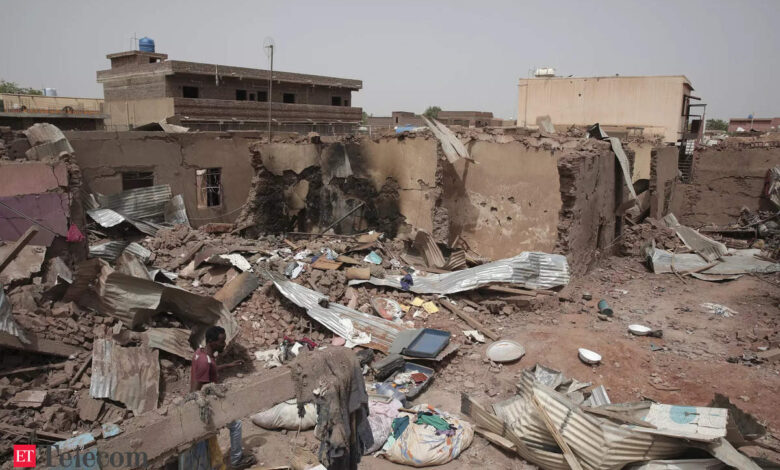NGOs, Telecom News, ET Telecom

Port Sudan: Sudan’s armed forces and rival paramilitaries must “end collective punishment” and restore life-saving telecommunications, Sudanese and international non-governmental organisations said Wednesday.
For over a year, Sudan’s army and paramilitary Rapid Support Forces have waged a war with each other, killing tens of thousands, displacing nearly nine million and destroying the country’s already fragile infrastructure.
“Indiscriminate attacks and disruption of telecommunications by warring parties have severely affected civilians’ ability to cope with the effects of the war, as well as aid workers’ capacity to deliver essential services,” said a statement signed by 94 NGOs, including Access Now, the Norwegian Refugee Council and the International Rescue Committee.
“Both sides have consistently used targeted attacks on telecommunication infrastructure or the imposition of bureaucratic restrictions,” leaving millions of Sudanese without access to support networks to survive what the United Nations has called “one of the worst humanitarian crises in recent memory”.
Most of the country’s 48 million people are in need of humanitarian aid — most commonly organised by grassroots volunteer groups who rely on expensive and sparse satellite internet, including via smuggled antennas for SpaceX’s Starlink.
That internet connection is the only way for civilians to receive cash transfers from relatives abroad, as most Sudanese have gone without salaries since the war began.
Vast swathes of the western region of Darfur, which has seen some of the war’s worst violence and is home to around a quarter of Sudan’s population, have been without communications for over a year.
In February, a nationwide telecommunications shutdown “left almost 30 million Sudanese” in a blackout for “more than a month”, the organisations said.
They called on both sides to “ensure the uninterrupted provision of telecommunication services in Sudan” and “facilitate the rehabilitation of damaged systems”.
In much of Sudan, local authorities and engineers have been unable to repair infrastructure damaged in the war because of a lack of resources or continued fighting in the area.




